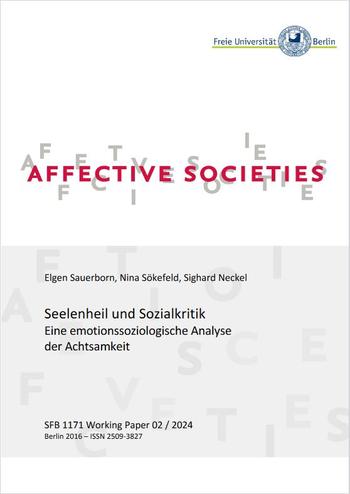Seelenheil und Sozialkritik. Eine emotionssoziologische Analyse der Achtsamkeit
Sauerborn, Elgen; Sökefeld, Nina; Neckel, Sighard – 2024
In this working paper, Elgen Sauerborn, Nina Sökefeld and Sighard Neckel analyse western concepts of mindfulness and their criticisms.
Social and cultural scholars have frequently criticized the rising popularity of Western secular mindfulness programs. According to this perspective, mindfulness is seen as the ultimate example of a self-technique aligned with neoliberalism and capitalism. However, this functionalist critique, while valid, overlooks an important aspect: the growing use of mindfulness to alleviate the burden of constant optimization driven by a growth-oriented mindset. Through extensive empirical field research, we demonstrate how mindfulness is negotiated as a response to current crises and social change, and to what extent this phenomenon can be understood as a symptomatic cultural manifestation of the present. Drawing on our ethnographic data from participant observation in mindfulness courses, interviews with mindfulness trainers, and analysis of relevant literature, we empirically reconstruct four paradoxes of mindfulness. Based on this, we illustrate how the broad applicability and popularity of the program are grounded in the fact that its implementation is as paradoxical as the societal issues it promises to address.


